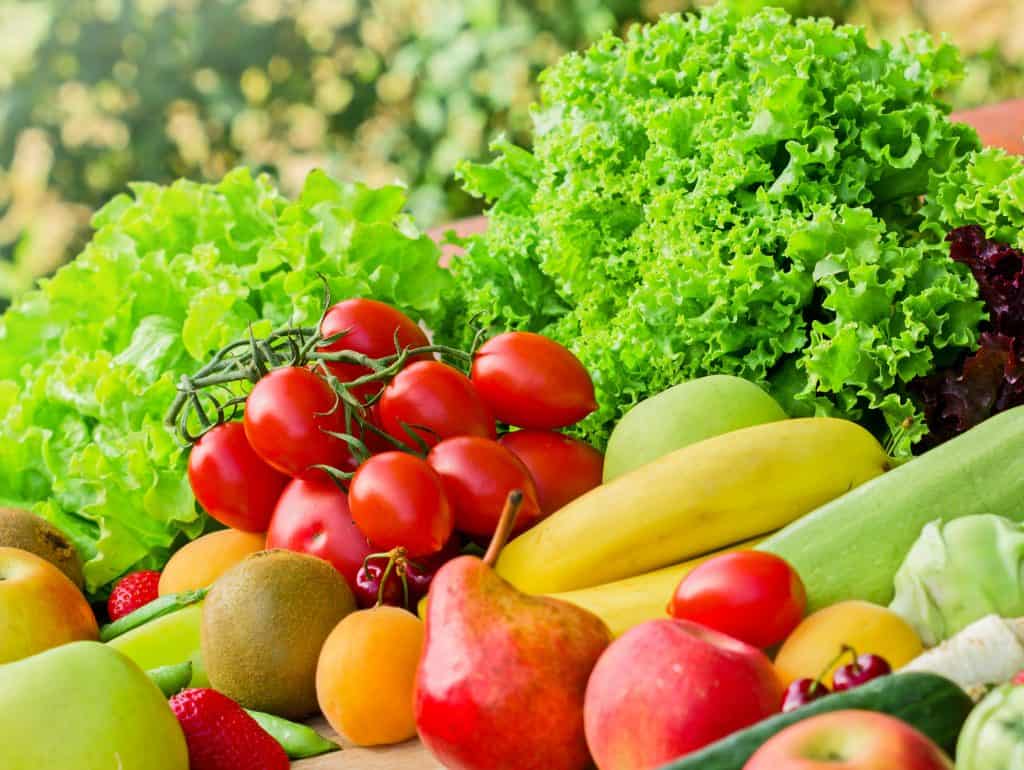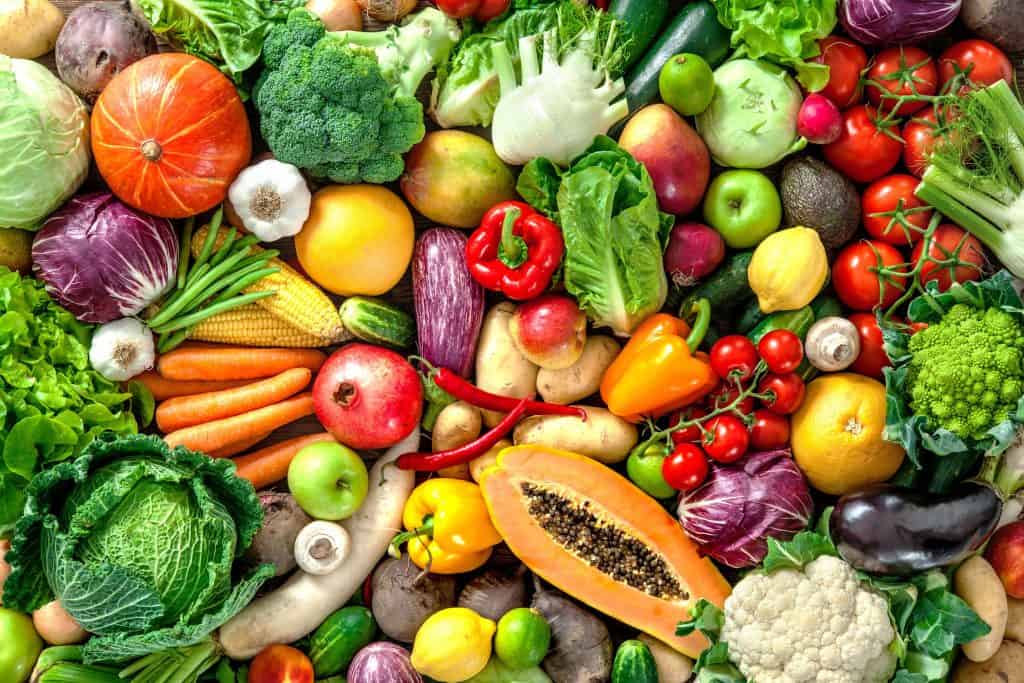What are Phytonutrients? Health Benefits, Where They’re Found
Posted by Prescription Hope - See Editorial Guidelines (Last Updated On: Mon Jul 10 2023)
There are many benefits to plant-based foods, and you may, in fact, be getting more benefits from plant-based foods than you think. We often hear about how natural fruits, vegetables, and nuts contain vitamins, minerals, and fiber, which are good for our health. But what about phytonutrients?
In this article, we will discuss what phytonutrients are and how they can benefit our bodies. Let’s get started with a quick summary, then we will dive into the specifics.
What are Phytonutrients? Phytonutrients are naturally occurring chemicals in plants that protect them from harmful fungi and bugs. Eating or drinking products containing phytonutrients may benefit the body, such as helping you fight off diseases.
Now that you have a brief answer, we can get into the details of how phytonutrients can benefit us.
What are Phytonutrients?

Plants produce chemicals, known as phytonutrients, used to keep them healthy. Some forms of phytonutrients will prevent attacks from harmful insects, while others can protect against fungi and germs from affecting the plant’s health.
Many plants will get their bright colors from these chemicals. The phytonutrients can also provide a more flavorful taste and scent. So, you may be able to tell if a fruit or vegetable is rich in phytochemicals in this way.
However, this may not always be the case. For example, onions and garlic do not have much color to them. This does not mean they will not be rich in phytonutrients. But when it comes to berries, melons, and leafy vegetables, the color and taste are good indicators.
Health Benefits of Phytonutrients
Phytonutrients are not considered to be essential for our bodies to function in a healthy way. For example, our bodies rely on us to get the proper amount of protein, carbohydrates, and fat to stay healthy. If not, then our health and bodies may begin to wither away.
Despite these chemicals not being essential, they can provide great benefits. There have not been enough large-scale trials to determine how exactly phytonutrients work in our body or their exact benefits. This is partly because there are many different types of phytochemicals, and each one will differ slightly and perform a different job than others.
However, it is certainly clear that there are benefits. That is why scientists, researchers, and nutritionists continue to push individuals to consume more natural fruits and vegetables.
Overall, it is believed that a diet that provides a rich amount of phytonutrients will aid in preventing and slowing the development of certain diseases. They may also reduce inflammation while providing benefits to bone, heart, lung, and eye health.
Now that you understand the benefits of phytonutrients let’s discuss the types and groups.
Types and Groups of Phytonutrients
Phytonutrients are classified into types based on their chemical structure. Within these types are many groups that contain hundreds of phytonutrients. Below is a breakdown of the more common types and groups of phytonutrients.
Types
- Betalains
- Chlorophyll
- Indoles
- Organosulfides
- Phenols
- Terpenes
- Triterpenes
Groups
- Carotenoids
- Curcuminoids
- Flavonoids
- Glucosinolates
- Hydroxycinnamic acids
- Lignans
- Lipids
- Stilbenes
- Sulfides
- Tocopherol
- Resveratrol
- Ellagic acid
6 Noteworthy Phytonutrients and Their Benefits
Of the thousands of phytonutrient types, six groups have been deemed noteworthy. Here they are and the potential health benefits they may have.
Lignans
Lignans are believed to have anti-inflammatory, antioxidant, and antitumor properties due to their biological makeup. It is believed that this type of phytonutrient can lower one’s risk of heart disease, menopause symptoms, osteoporosis, and breast cancer.
Therefore, consuming lignan-rich foods may prevent chronic diseases, such as cancer or cardiovascular disease.
Foods that are rich in lignans include sesame, sunflower, flax, poppy, and pumpkin seeds. Other nuts such as cashews and peanuts also contain lignans. However, flax seeds seem to contain the most amount. Broccoli, kale, apricots, strawberries, and peaches are other great sources of lignans. Whole grains such as rye, barley, and oats also contain a certain amount of this phytonutrient.
Resveratrol
Resveratrol is a phytonutrient that acts as an antioxidant. The health benefits that it can provide include preserving brain health, increasing insulin sensitivity, and lowering blood pressure. It may also aid in preventing cartilage from deteriorating, which prevents joint pain and preserves mobility.
Resveratrol has also been found to have an anti-aging effect on certain animals. However, it is not known if it works the same way in humans.
Grapes, berries, and peanuts are excellent sources of resveratrol. It can also be found in red wine.
Carotenoids

Carotenoids act as antioxidants and have benefits that include boosting the immune system to protect the body against disease. Increasing this phytonutrient in your body through your diet can protect healthy cells in your body, which can help prevent the growth of cancer cells.
Carotenoids are also particularly beneficial for protecting against macular degeneration. They can also be useful for protecting your skin against damage caused by UV light.
Carotenoids can be found in foods such as carrots, sweet potatoes, papaya, watermelon, cantaloupe, mangoes, spinach, kale, tomatoes, bell peppers, and oranges
Curcuminoids
Curcuminoids are active compounds found in turmeric. Curcumin is the main curcuminoid found in turmeric. Turmeric is a common spice that is derived from the root of a plant native to India.
Turmeric is known to have many health benefits, which can be mostly attributed to curcumin. The major health benefit of this spice is its anti-inflammatory properties. It is also believed that it may be able to prevent Alzheimer’s disease and depression.
In addition to these benefits, some research suggests other health benefits of curcuminoids may include improved skin health, treating or preventing diabetes, protection against heart disease, preventing cancer, and easing symptoms of osteoarthritis and rheumatoid arthritis.
Ellagic Acid
Ellagic acid is known for having antioxidant properties. It is believed that ellagic acid can be used for preventing cancer, treating dark skin patches, and improving cognitive function. This phytonutrient has also been known to reduce inflammation and promote weight loss.
Ellagic acid can be found in many fruits and vegetables. It is particularly found in various berries, grapes, pomegranate, guava, pecans, and walnuts.
Flavonoids
Like many of the other phytonutrients we have discussed, flavonoids also have antioxidant properties. They can be used to fight off free radicals that are responsible for causing oxidative stress. Therefore, they can be useful in protecting the body from toxins and stress. In addition to this, they can be useful in preventing inflammation.
Foods that are rich in flavonoids may include berries, red cabbage, onions, kale, parsley, dark chocolate, soybeans, and citrus fruits. Red wine and certain teas may also contain flavonoids.
Closing Thoughts
Although phytonutrients are not essential, they can provide many health benefits. Incorporating them into your everyday life can help you fight off diseases and infections that can be harmful to your health. We hope this article has given you a better understanding of how that can be done.
For questions regarding your specific health condition, always consult your doctor. Your health condition may require prescription medications for treatment. If you believe you are paying too much for your medicine, then Prescription Hope may be able to help.
ENROLL



